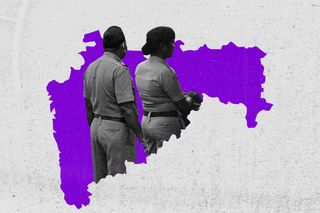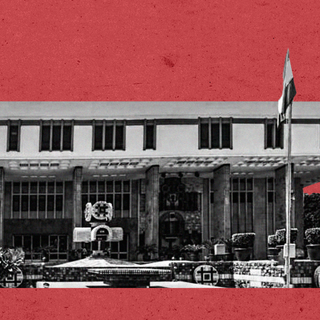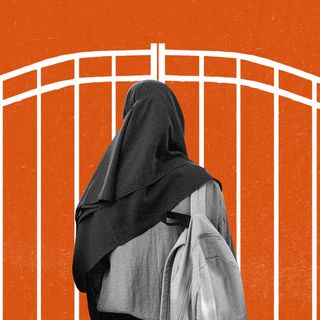
Maharashtra Issues Police Guidelines to ‘Sensitively Handle’ Crimes Against Women, Children
The notification come after a minor’s sexual assault in Palghar was mishandled and her pregnancy could no longer be terminated.

The Home Department of Maharashtra has issued a notification listing ways for police personnel to sensitively handle crimes perpetrated against women and children — especially when it pertains to sexual assault.
The guidelines were issued in response to the kidnapping and “repeated” sexual assault of a minor in Palghar, who was produced before the authorities so late that her pregnancy could no longer be terminated.
“The medical examination of the girl revealed that she was more than 23 weeks pregnant… In spite of this, the investigating officer of the case failed to produce the girl before the concerned Women and Child Welfare Committee within 24 hours of the examination, as per the… procedure [laid down] under Protection of Children from Sexual Offences Act [POCSO Act, 2012]. The girl was produced before the committee 45 days later, when she was 30 weeks pregnant. Because of this delay, her pregnancy could not be terminated,” the notification states.
To avoid such inordinate delays — which are extremely unfortunate, if not downright callous, and can have long-lasting repercussions on the survivors of violence — the state has put forth 10 guidelines that would apply to police officers across Maharashtra.
Related on The Swaddle:
SC Issues Guidelines for Courts to Consider Influence of Caste, Disability in Sexual Abuse Cases
In India, mishandling of sexual assault cases due to negligence or bias on part of the police is rather rampant. In 2012, for instance, a 17-year-old woman from Punjab, who was gang-raped, died by suicide after police officers tried to persuade her to drop the case, and instead, get married to one of her perpetrators.
“When verbal harassment or groping do occur in public areas [in India], bystanders frequently look the other way rather than intervene, both to avoid a conflict and because they — on some level — blame the victim, observers say. Male politicians contribute to the problem, making statements that make light of rape or vilify rape victims’ supporters,” The Washington Post had reported, summing up the many reasons why “India has a sexual violence problem.”
As basic steps to ensure police officers working a case stick to procedures and their prescribed timelines, the guidelines recommend that trainees across police training centres in the state be encouraged to understand and abide by the POCSO Act and the Juvenile Justice (Care and Protection of Children) Act, 2015. Further, to enable the officers to truly help survivors and their families, the notification requires in-service personnel and officers to undergo regular workshops and sensitivity training sessions to “refresh their training in these legislation[s].”
This is, perhaps, an attempt to sidestep the attitude of bias against survivors that the police force is reported to hold. And so, the guidelines further advise the involvement of experts, or individuals from NGOs, or the Women and Child Welfare Committee in conducting the training sessions.
Not only that, according to the notification, police officers must also inform survivors and their family members of government welfare schemes that exist to rehabilitate survivors of sexual assault.
Related on The Swaddle:
Non‑Penetrative Sexual Acts Without Consent Also Count as Rape, Kerala HC Rules
Moreover, the guidelines state, “Utmost care must be taken to ensure that the identity of the victim is not revealed under any circumstance.” This is in line with a December 2018 judgment by the Supreme Court, where it was held that Section 228A of the Indian Penal Code — which makes disclosure of a rape survivor’s identity punishable with imprisonment — extends beyond the disclosure of a name; if a survivor’s identity is even “discernible from any matter published in the media,” media would be punishable under the statute.
The court had reasoned that since the object of the law is to prevent a survivor from facing social ostracization, hostile discrimination, or harassment, the law should be interpreted in a manner to prevent that from happening — by any means. In fact, last year, the Bombay High Court had ruled that survivors’ identities should remain concealed not only in charge sheets, but also in communications with adjudicating authorities. The judgment had gone on to direct investigating officers to use ‘X‘ or any other letter of the alphabet to refer to survivors, instead of using their names.
To make the investigation easier for the survivors, the notification lays down two important guidelines: first, statements from survivors must be recorded in their mother tongue; second, where the victim is a minor, such recording of statements must be conducted in the presence of their guardians.
The task of ensuring the guidelines are actually being implemented has been assigned to unit commanders, who have been directed to conduct regular reviews.
“This is not the first time a notification has been issued to highlight key steps towards sensitive handling of crimes against women and children. However, a lot more still needs to be done to make the response better,” an IPS officer, who has served as the unit commander in Maharashtra in the past, told The Indian Express, recommending further that “standard operat[ing] procedures are reviewed from time to time and [adherence is] monitored [periodically].”
Devrupa Rakshit is an Associate Editor at The Swaddle. She is a lawyer by education, a poet by accident, a painter by shaukh, and autistic by birth. You can find her on Instagram @devruparakshit.
Related


‘Reproductive Choice’ Part of Woman’s ‘Personal Liberty’: Delhi HC Allows Termination of 28‑Week‑Pregnancy
